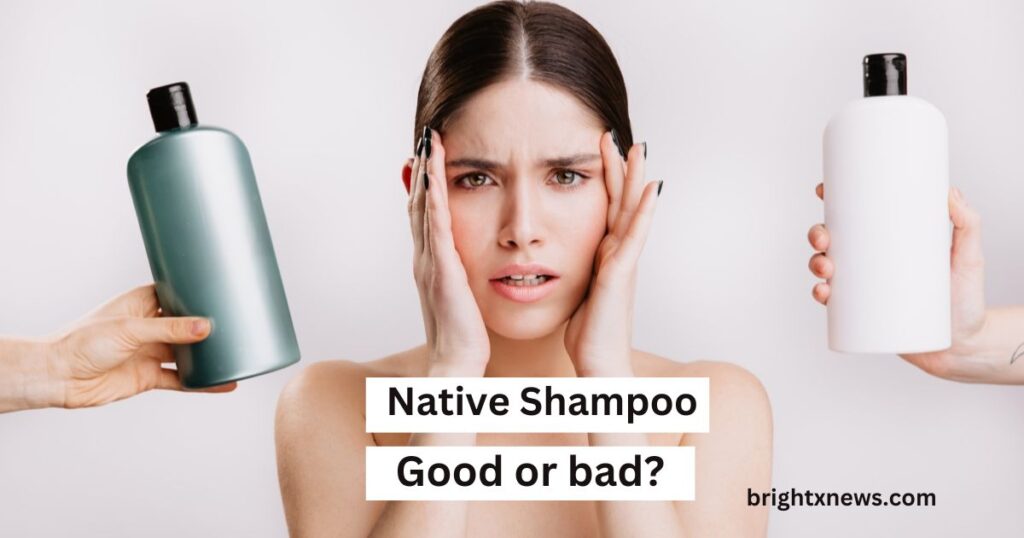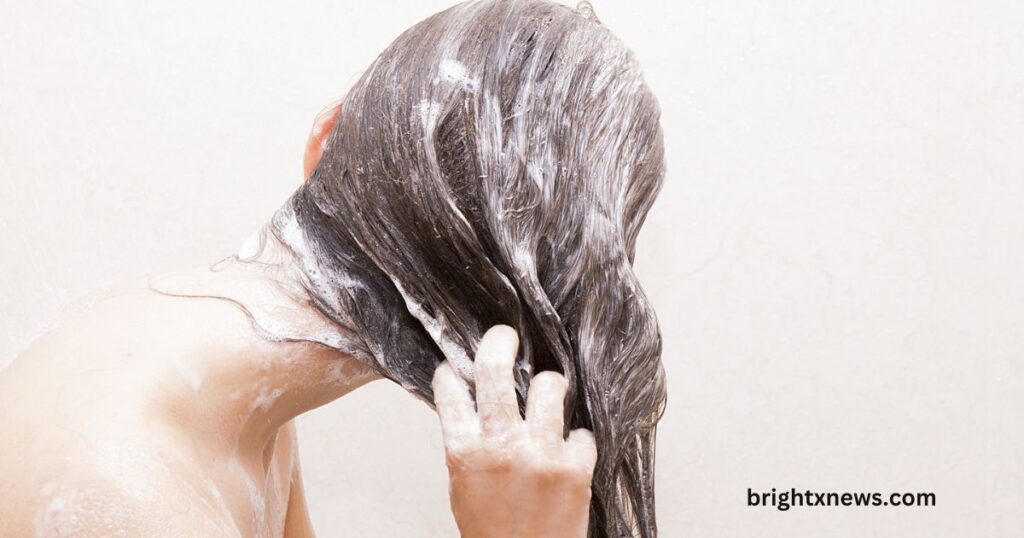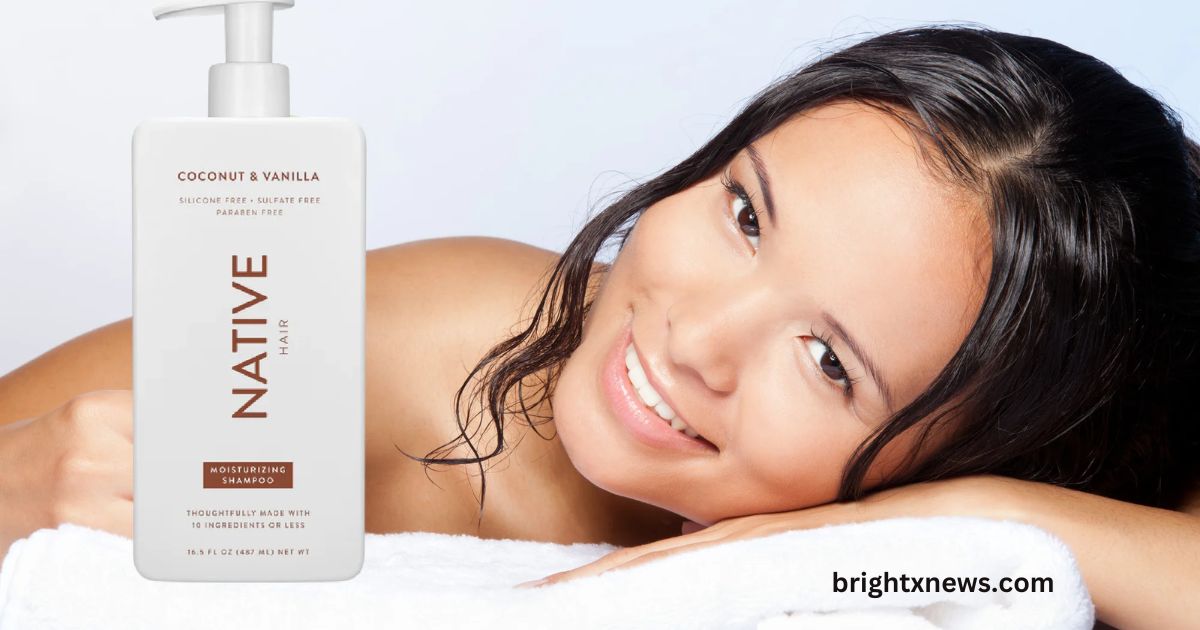Native shampoo is a hair care product made with natural ingredients. It’s free from harsh chemicals like sulfates and parabens. Native shampoo comes in different scents like coconut, cucumber, and lavender. Many users say it leaves their hair feeling clean and soft.
The brand focuses on using plant-based ingredients. Native is often praised for being gentle on the scalp. It’s suitable for most hair types, including color-treated hair. The company also offers matching conditioners to complement their shampoos.
What exactly is a native shampoo and conditioner?
Native shampoo and conditioner are hair care products made by the brand Native. They are formulated using natural and plant-based ingredients. These products avoid harsh chemicals often found in traditional hair care items. Native shampoos and conditioners come in various scents inspired by nature.
They are designed to clean and nourish hair without stripping it of natural oils. Native products are free from sulfates, parabens, and other potentially harmful additives. The brand aims to provide effective hair care using simple, recognizable ingredients.
Native shampoos and conditioners are suitable for most hair types and textures. They are gentle enough for daily use and safe for color-treated hair. The brand focuses on creating products that are both good for hair and environmentally friendly. Native offers matching shampoo and conditioner pairs for a complete hair care routine.
Is native shampoo good?
Native shampoo has gained popularity among many users for its natural approach to hair care. People often praise it for being gentle on their hair and scalp. The absence of harsh chemicals is a big plus for those with sensitive skin. Many users report that Native shampoo leaves their hair feeling clean and soft.
The variety of scents is another feature that customers appreciate. Some find that it helps reduce scalp irritation and dandruff. However, like any product, its effectiveness can vary from person to person. A few users mention that it may not lather as much as traditional shampoos. Overall, many consider Native shampoo a good option for those seeking a more natural hair care routine.
Is native shampoo good for your hair?

Native shampoo is generally considered good for hair by many users. It uses natural ingredients that can be gentler on hair and scalp. The absence of harsh chemicals may help maintain hair’s natural oils. Many people report softer, healthier-looking hair after using Native shampoo.
It’s suitable for most hair types, including color-treated hair. The brand offers various formulas to address different hair concerns. However, results can vary depending on individual hair types and needs. As with any hair product, it’s best to try it and see how your hair responds.
8 points about Native shampoo’s benefits for hair:
1. Natural ingredients:
Native shampoo uses plant-based ingredients.
This can be less harsh on hair and scalp.
It may help reduce irritation for some users.
2. Sulfate-free formula:
Native shampoo doesn’t contain sulfates.
This can help prevent stripping hair of natural oils.
It may lead to less dryness and frizz for some hair types.
3. Gentle cleansing:
The shampoo cleans hair without harsh chemicals.
This can be beneficial for maintaining hair health.
It may help preserve hair’s natural moisture balance.
4. Variety of scents:
Native offers several natural fragrances.
This allows users to choose a scent they enjoy.
The scents are derived from natural sources.
5. Suitable for most hair types:
Native shampoo works for various hair textures.
It’s often safe for color-treated hair.
The brand offers different formulas for specific hair needs.
6. Free from parabens:
Native doesn’t use parabens in their shampoos.
This appeals to those avoiding these preservatives.
It may be beneficial for those with paraben sensitivities.
7. Potential for improved scalp health:
The natural formula may be gentler on the scalp.
Some users report reduced dandruff and irritation.
It might help balance the scalp’s natural oils.
8. Environmentally conscious:
Native often uses recyclable packaging.
The brand focuses on sustainability in their practices.
This can appeal to environmentally conscious consumers.
What hair type is ideal or suitable for Native Shampoo?

Native shampoo is designed to work well with various hair types. It’s suitable for straight, wavy, curly, and coily hair textures. People with fine hair often find it doesn’t weigh their hair down. Those with thick hair report that it cleanses effectively without being too harsh.
Native shampoo is generally safe for color-treated hair as well. It can be a good option for those with sensitive scalps due to its gentle formula. The brand offers different variations to address specific hair concerns. Some formulas are designed for extra hydration, while others focus on volumizing.
Native shampoo may be especially beneficial for those looking to reduce their use of harsh chemicals. People with dry or damaged hair might appreciate its moisturizing properties. Those prone to scalp irritation or dandruff may find relief with Native’s natural ingredients. However, individuals with very oily hair might need to experiment to find the right Native formula.
As with any hair care product, results can vary from person to person. It’s always a good idea to test a new shampoo for a few weeks to see how your hair responds. If you have specific hair concerns, consulting with a hairstylist can help determine if Native is right for you.
Does Native shampoo have side effects?

Native shampoo is generally considered safe for most users. However, like any hair product, some people may experience side effects. These are usually mild and not common. Most side effects are related to individual sensitivities or allergies. It’s always a good idea to do a patch test before using a new product.
If side effects occur, they are typically minor and temporary. Some users might notice changes in hair texture or scalp feel. These often resolve as the hair adjusts to the new product. In rare cases, more significant reactions may occur. If you experience any persistent issues, stop using the product.
Most reported side effects are related to personal preferences. Some users find the natural formula doesn’t lather as much as they’re used to. Others might feel their hair needs an adjustment period. These aren’t harmful effects, but they can affect user experience. It’s important to give your hair time to adapt to a new shampoo.
Native shampoo’s natural ingredients are generally well-tolerated. However, natural doesn’t always mean zero risk for everyone. Some people might be sensitive to certain plant-based ingredients. If you have known allergies, always check the ingredient list carefully. Consult with a dermatologist if you have concerns about using Native shampoo.
Potential Side Effects Of Native Shampoo:
1. Scalp irritation:
Some users might experience mild scalp irritation.
This could manifest as itching, redness, or flaking.
It’s often due to individual sensitivity to an ingredient.
If irritation persists, discontinue use and consult a doctor.
This side effect is not common but can occur with any shampoo.
2. Allergic reactions:
In rare cases, users might have an allergic reaction.
Symptoms could include rash, swelling, or severe itching.
This is more likely if you have known allergies to plant-based ingredients.
Always do a patch test before using the product fully.
Stop using immediately and seek medical help if you suspect an allergic reaction.
3. Changes in hair texture:
Some users report changes in how their hair feels.
Hair might feel different as it adjusts to a sulfate-free formula.
This could include a temporary increase in oiliness or dryness.
These changes usually balance out after a few weeks of use.
If undesirable changes persist, try a different Native formula or discontinue use.
4. Buildup on hair:
Some people might experience product buildup over time.
This can make hair feel heavy or look dull.
It’s more likely if you don’t rinse thoroughly or use too much product.
Using a clarifying shampoo occasionally can help prevent this.
If buildup is a persistent issue, you might need to adjust your hair care routine.
5. Ineffective cleansing for some hair types:
Not everyone finds Native shampoo effective for their hair needs.
Some with very oily hair might feel it doesn’t clean thoroughly enough.
Others with very dry hair might need more moisturizing formulas.
This isn’t a side effect, but can affect user satisfaction.
Experimenting with different Native formulas or application methods might help.
Native shampoo pros and cons
Pros of Native shampoo:
• Uses natural, plant-based ingredients
• Free from harsh chemicals like sulfates and parabens
• Gentle on hair and scalp
• Suitable for most hair types, including color-treated hair
• Offers a variety of pleasant natural scents
• May help reduce scalp irritation for some users
• Cruelty-free and often uses recyclable packaging
• Can leave hair feeling soft and manageable
Cons of Native shampoo:
• May not lather as much as traditional shampoos
• Can be more expensive than some drugstore brands
• Some users may need an adjustment period when switching
• Might not be strong enough for very oily hair types
• Natural scents may not appeal to everyone
• Limited availability compared to mainstream brands
• Results can vary depending on individual hair type and needs
• May require more frequent washing for some users
Frequently Asked Questions
Is Native shampoo sulfate-free?
Yes, Native shampoos are sulfate-free. They use gentler, plant-based cleansing agents instead.
Does Native shampoo work for curly hair?
Many curly-haired users report good results with Native shampoo. It’s gentle and moisturizing, which can benefit curly hair.
How long does a bottle of Native shampoo typically last?
Most users report a bottle lasting 1-2 months with regular use. This can vary based on hair length and washing frequency.
Can Native shampoo help with dandruff?
While not specifically anti-dandruff, some users find Native’s gentle formula helps reduce scalp irritation. Results may vary.
Does Native conditioner leave hair greasy?
Most users say Native conditioner doesn’t leave hair greasy. It’s designed to moisturize without weighing hair down.
Conclusion
Native shampoos and conditioners have gained popularity among those seeking natural hair care options. Many users appreciate the plant-based ingredients and the absence of harsh chemicals. The products generally receive positive reviews for leaving hair clean, soft, and manageable. Users with various hair types, including color-treated hair, often report good results. However, as with any hair care product, experiences can vary based on individual hair needs.
While Native hair care products have many fans, they may not be ideal for everyone. Some users find they need time to adjust to the natural formula. The higher price point compared to some drugstore brands is a consideration for some consumers. Overall, Native shampoo and conditioner offer a promising option for those interested in more natural hair care. Many users find the benefits outweigh any potential drawbacks.
Read More…
- The 21 Most Popular Brown Hair Color Shades
- Native Shampoo and Conditioner Reviews
- Calico Hair Color Trend











